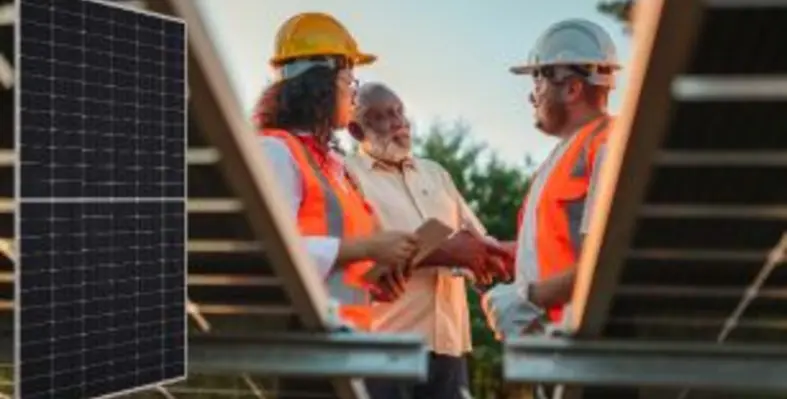Sharp Energy Solutions Europe has delivered 900 units of the NB-JD550 bifacial solar panel to Egypt
This was part of a project introduced by the International Food Policy Research Institute (IFPRI) with support from the Ministry of Foreign Affairs in Japan. The delivery is intended to promote sustainable agriculture and address food security challenges in the Middle East & North Africa region.
IFPRI has designed and proposed various projects in MENA, which aim to bring modern technologies, technical know-how, and institutional innovations to local communities in developing countries. IFPRI collaborates with governments, academia, the private sector, and non-government organisations to address pressing challenges related to food and nutrition.
In collaboration with Sharp Energy Solutions Europe, IFPRI's project in Egypt focuses on improving smallholders' access to irrigation water through the deployment of solar-powered water pumps. These innovative solar-powered irrigation systems provide a sustainable solution to rural communities facing food security issues, rising diesel prices, water shortages, and water management challenges.
The solar-powered pumps offer several advantages for smallholders in Egypt, including reduced irrigation costs, stable water supply, increased production of nutrition-rich foods such as vegetables and fruits, employment opportunities, improved health, and enhanced food and nutrition security. The project also strengthens the resilience of vulnerable populations in these crisis-prone countries.
Egypt was selected as the project location due to the favourable geographical and climatic conditions, making it ideal for harnessing solar energy to support sustainable water irrigation.
To address the challenge of limited solar energy availability for irrigation overnight and in the late afternoons, the project incorporates a hybrid system that combines solar energy systems with conventional diesel or grid-powered pumps. This approach is projected to reduce irrigation costs by up to 50%.
IFPRI's collaboration with local communities, government agencies, and other stakeholders is central to the success and sustainability of these solar projects. The Institute's Cairo Office and its partner organisation, Gebal, work closely with stakeholders to ensure the effective implementation and long-term impact of the initiatives.
IFPRI envisions scaling up and replicating these solar projects in other regions or countries based on evidence-based practices and rigorous impact evaluations. By promoting solar-powered pumps for smallholder food production, IFPRI aims to contribute to long-term sustainable development, resilience, and food security in Egypt.
“As it is inherently sustainable and resilient to fossil fuel uncertainties, solar power has the potential to transform water irrigation practices and reduce dependence on diesel fuels. As we move forward, we remain committed to our mission of providing sustainable energy solutions that have a positive impact on lives and the environment on this planet,” said Futoshi Yamauchi from IFPRI.
Andrew Lee, sales director EMEA, SHARP Energy Solutions Europe, “We are very proud to be a key partner to IFPRI in this vital endeavour, delivering cutting-edge solar technology with the Sharp Bifacial NB-JD550 Watt panel to empower communities and address critical challenges in agriculture and food security in Egypt.”







